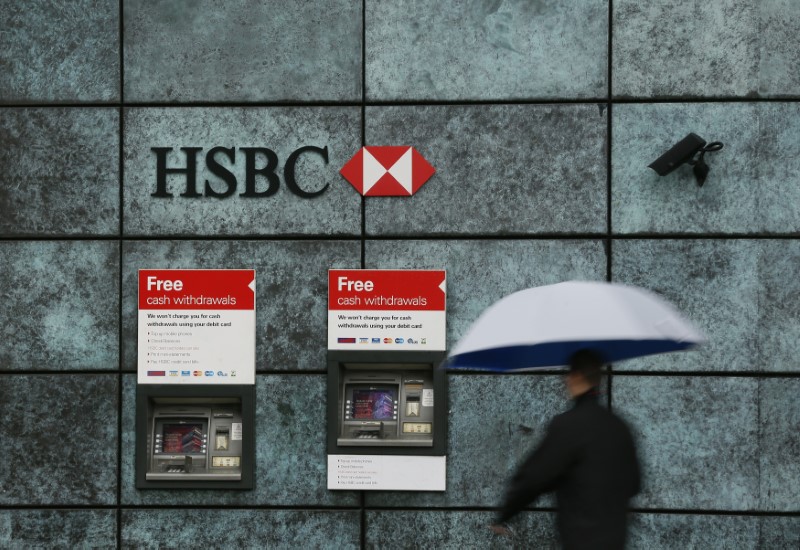This post was originally published on this site

Investing.com — London-listed shares in HSBC Holdings PLC (LON:HSBA) rose on Monday after the bank vowed to bring its dividend back to pre-pandemic levels as it reported better-than-expected second quarter earnings.
The lender said it now plans to restore the dividend to shareholders to its amount before the crisis “as soon as possible.” The payout was initially scrapped by the Bank of England in response to the emergence of COVID-19, but HSBC partially restored it last year.
“We also intend to revert to paying quarterly dividends in 2023, although we expect the quarterly dividend for the first three quarters to initially be reinstated at a lower level than the historical quarterly dividend of $0.10 per share paid up to the end of 2019,” HSBC said in a statement.
The Britain-based company also posted a quarterly pre-tax profit of $5B, above estimates of $3.9B, thanks to cost cuts and strong revenue growth driven by higher interest rates. The uptick helped offset negative foreign currency impacts and losses from planned business disposals.
Group chief executive Noel Quinn added that the group is targeting a return of tangible equity of at least 12% from next year onwards as it pursues a “pivot” to its Asian operations. HSBC has said it is aiming to focus its business on Hong Kong and mainland China despite recent tensions between Beijing and Western nations, particularly the U.S.
“The progress that we’ve made growing and transforming HSBC means we are in a strong position as we enter the current rates cycle,” Quinn said.
The canceled dividend has become a central complaint for some of HSBC’s largest shareholders. Ping An, the Chinese insurer who has built an 8.26% stake in the bank, was especially outraged by the move.
Ping An has subsequently led an effort to split HSBC’s Asian and western units. It argued that a separated Hong Kong-listed division would turn greater profits, bring down capital requirements, streamline decision-making, and put an end to HSBC’s need to appease both China and the U.S.
Quinn did not mention Ping An in the lender’s latest published results, but said “our strength as a well connected, global institution is the main reason our wholesale clients choose to bank with us and we are determined to capitalise on the advantages our network gives us.”
In an interview with the Financial Times, Quinn also dismissed suggestions that the standoff with Ping An was politically motivated, saying HSBC does not believe the issues are “anything but commercial.”



